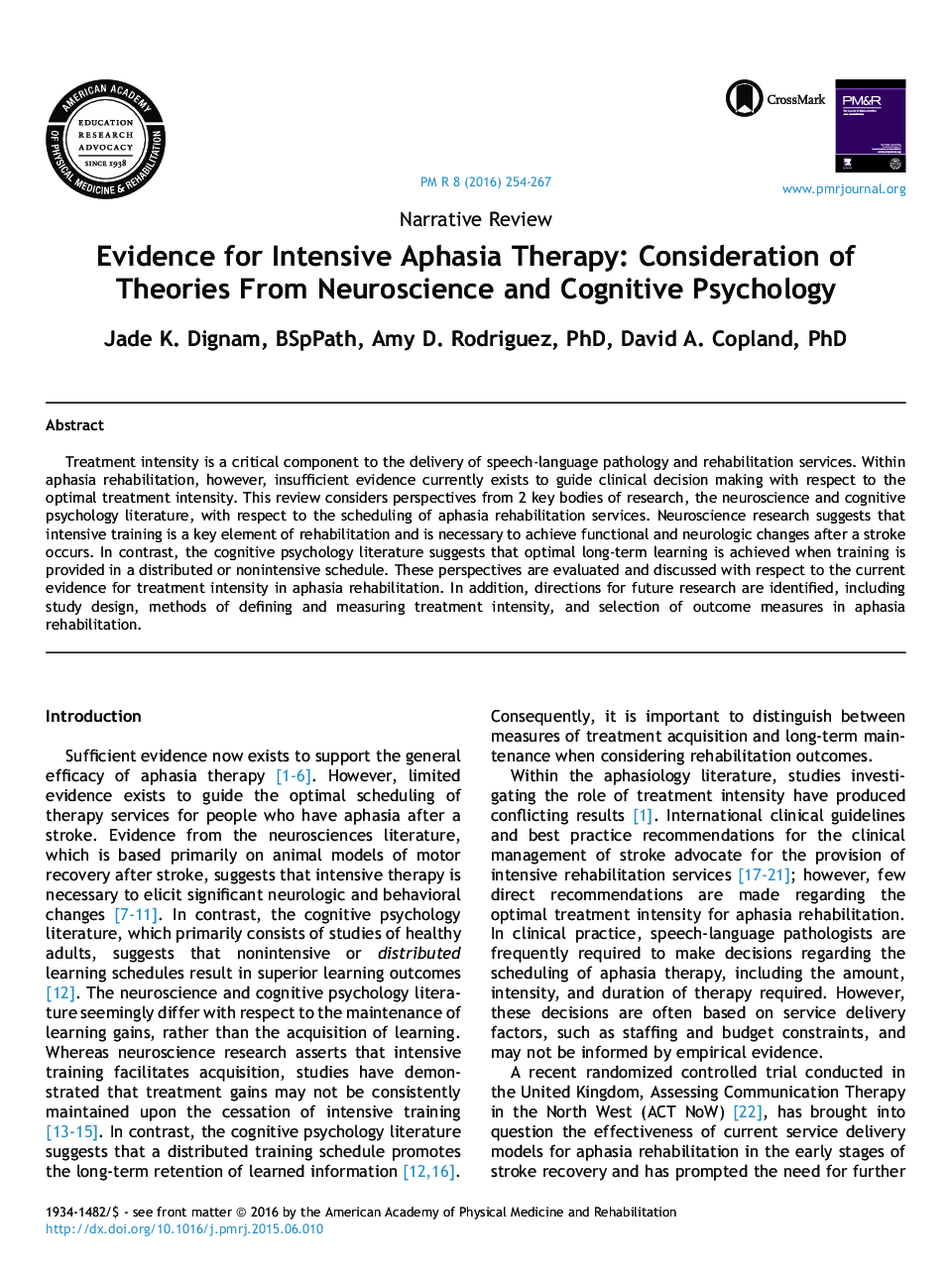| Article ID | Journal | Published Year | Pages | File Type |
|---|---|---|---|---|
| 2711949 | PM&R | 2016 | 14 Pages |
Treatment intensity is a critical component to the delivery of speech-language pathology and rehabilitation services. Within aphasia rehabilitation, however, insufficient evidence currently exists to guide clinical decision making with respect to the optimal treatment intensity. This review considers perspectives from 2 key bodies of research, the neuroscience and cognitive psychology literature, with respect to the scheduling of aphasia rehabilitation services. Neuroscience research suggests that intensive training is a key element of rehabilitation and is necessary to achieve functional and neurologic changes after a stroke occurs. In contrast, the cognitive psychology literature suggests that optimal long-term learning is achieved when training is provided in a distributed or nonintensive schedule. These perspectives are evaluated and discussed with respect to the current evidence for treatment intensity in aphasia rehabilitation. In addition, directions for future research are identified, including study design, methods of defining and measuring treatment intensity, and selection of outcome measures in aphasia rehabilitation.
